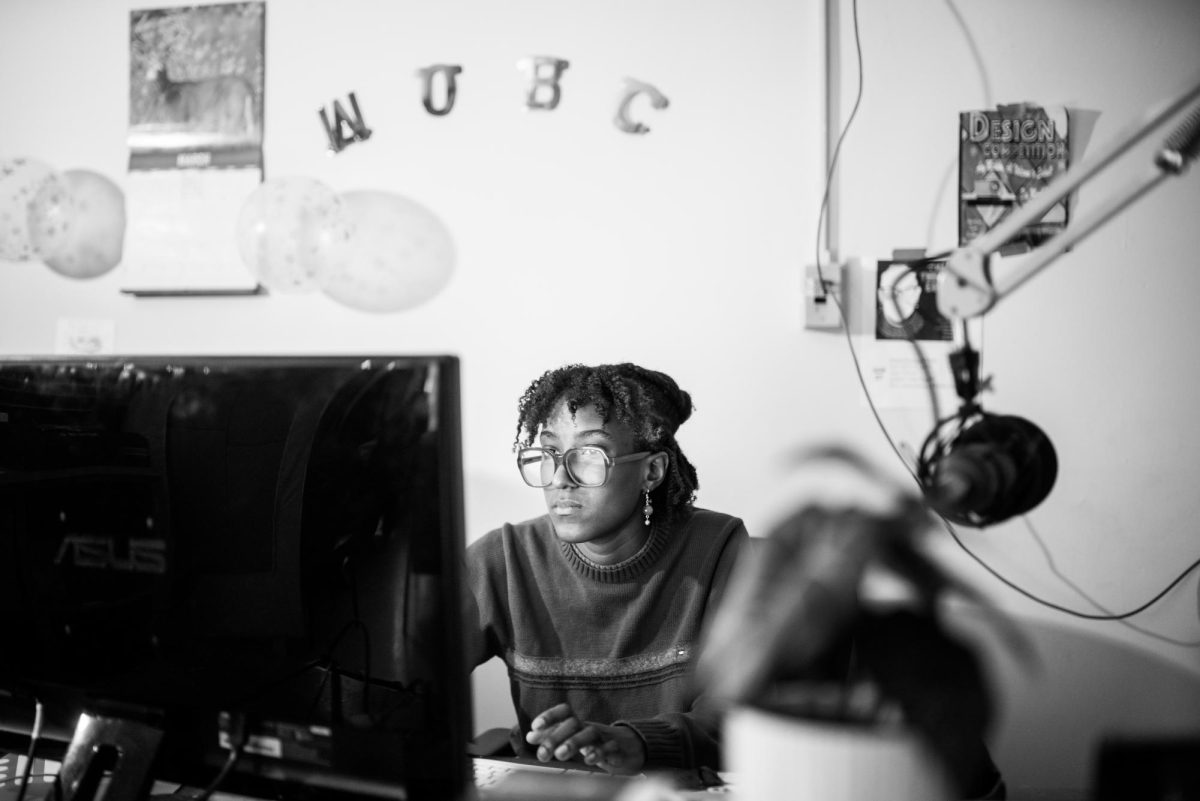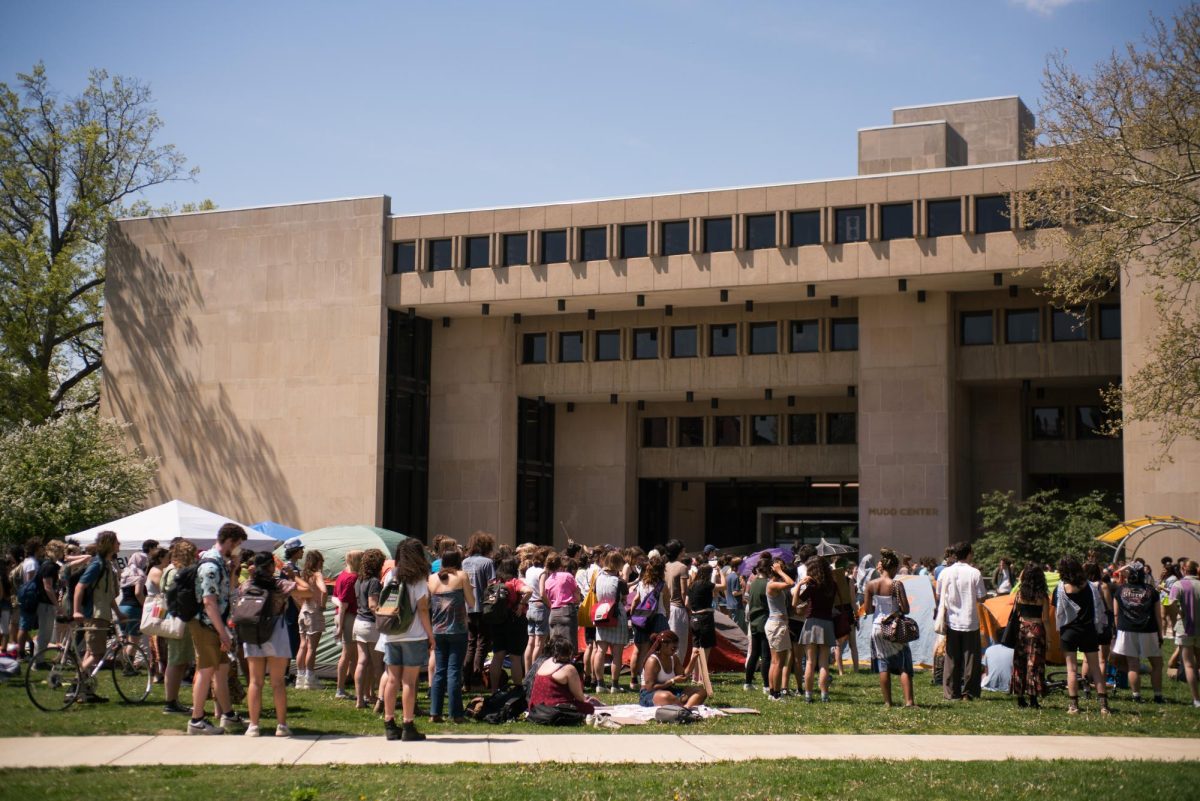In this era of oversaturated commercial radio and a shift toward podcasts and streaming available anytime, radio sometimes feels like a dying art form. I would argue that not only is this not the case, but that feeling makes it all the more necessary that we actively engage with it as a form of communication.
In January, the Federal Communications Comission, the governmental body in charge of managing radio and other forms of broadcasting, opened an investigation into NPR and PBS, two of the largest public radio networks in the country, for possible noncompliance with regulations that prohibit airing commercials or issuing “calls to action.” According to FCC guidelines, radio stations cannot broadcast anything considered a “call to action,” ranging from telling audiences to buy a product or go to a political event or listen to a song. NPR and PBS have affirmed their adherence to FCC rules, but I believe it is important to interrogate the singling out of these networks.
Because the FCC is a government agency, the commissioners are appointed by the president and therefore often politically align with them; the choice to look into these stations in particular remains in line with Trump’s targeting of more progressive and educational media outlets, as well as his questioning of the necessity to fund public media at all. This is part of why I am arguing that radio is necessary — it is a way of disseminating information to a wide range of people, and ignoring the power that that holds is a dangerous game. Radio continues to remain prevalent among right-wing communities, as demonstrated by the proliferation of the Salem Radio Network and other neo-Christian stations that push conservative values. They see it as a valuable asset and are using it as such. Therefore, I believe we must, too.
Radio, like any form of media, is a tool. It is a tool to tell stories, convey ideas, and share music and knowledge — it can be whatever one wants to make it. The question then becomes what kinds of stories, ideas, music, and knowledge are broadcast and platformed. Radio has been used to spread propaganda and fascist ideals across the globe, but also to broadcast revolutionary and educational material. The Nazis used radio to spread antisemitic rhetoric and cultivate a sense of a white national community among its listeners. Pacifica Radio broadcast programs interviewing the Black Panthers and queer movement leaders, and reporting on anti-war struggles during eras in which those experiences and politics were not only considered taboo but criminalized. The medium of radio lends to the creation of a certain coalition; if a group of people, often geographically linked, are all listening to the same programming at the same time, it is easy to create a listening public that begins to see themselves as interconnected with other listeners via their shared experience. In doing so, it also creates in- and out-groups of listeners, particularly based on how a station defines the “public” it is appealing to. This makes radio an effective method of delineating who belongs to certain groups, like national identity, and who doesn’t.
Oberlin’s station offers a unique look into the forms radio can take. WOBC-FM is an FCC-licensed non-commercial, non-profit station, meaning it must abide by certain regulations concerning advertising but also that it is granted more flexibility with the music and programming it produces. It is also a community and listening audience radio station, which is somewhat unusual for stations at private institutions. It exists as one of the only major bridges between students and community members on a campus where the divide between the institution and the town bring insignificant, exacerbated by College policies and their land purchases, as well as classist and individualistic student attitudes.
I believe that all radio stations, but particularly WOBC, have a responsibility to their communities and listeners, not only to broadcast content that is engaging and relevant to them, but also to provide a platform for members of the community to create content that resonates with their own experiences. Different areas of the Oberlin population, both on campus and in the surrounding town, know the needs of their respective circles better than other members of the station or the administrators ever could.
Let me be fully transparent in saying that I am part of WOBC, a member of the station’s student board, and am very invested in the work that it does. My love for it was founded on a love of music and sharing it with others, but developed further when I began to see the kind of work that WOBC and radio at large were doing — and could do — to connect people and be a resource to the community as a whole. WOBC broadcasts PSAs that help keep listeners informed, organizes events that connect community members and students over a shared love of music, and hosts a variety of shows that cater to different different WOBC serves common interests.
Let me also say that there are many areas where WOBC still needs to grow. Since its inception, WOBC has been an incredibly white and insular space. We are working to get more student organizations and community members involved so that WOBC can more honestly live up to its name as a community station and its mission of serving and broadcasting for and with the community. We also recognize there is so much more work to be done. And at an institution like Oberlin in a country like this one, it must be done.
There is power in radio and its capacity to connect and educate people. That is why public broadcasting, particularly that run by students and communities that work to platform systematically silenced perspectives and voices, is seen as a threat. Do I believe that WOBC is a revolutionary resource or that it can do the work of organizing people or fighting fascism? No; it is a student and community station on a small campus in Ohio that is required to abide by certain rules from the government to keep its license. What I do believe is that it provides a space for us to connect and create content that educates people and brings them together. I believe that, just like all independent radio stations, it has a responsibility to do these things and a responsibility to its community.
WOBC is a special resource and opportunity and we must use it as such. Whether that is through programs that discuss labor issues, Palestinian culture, queer experiences, African music, educational news, or through station-sponsored community events, fundraisers, and platforming of local musicians, there is space for community, for resistance, and for change. It is our responsibility to use the tools at our disposal to build connections. So get involved with WOBC, tune in, and keep the dial wild.










